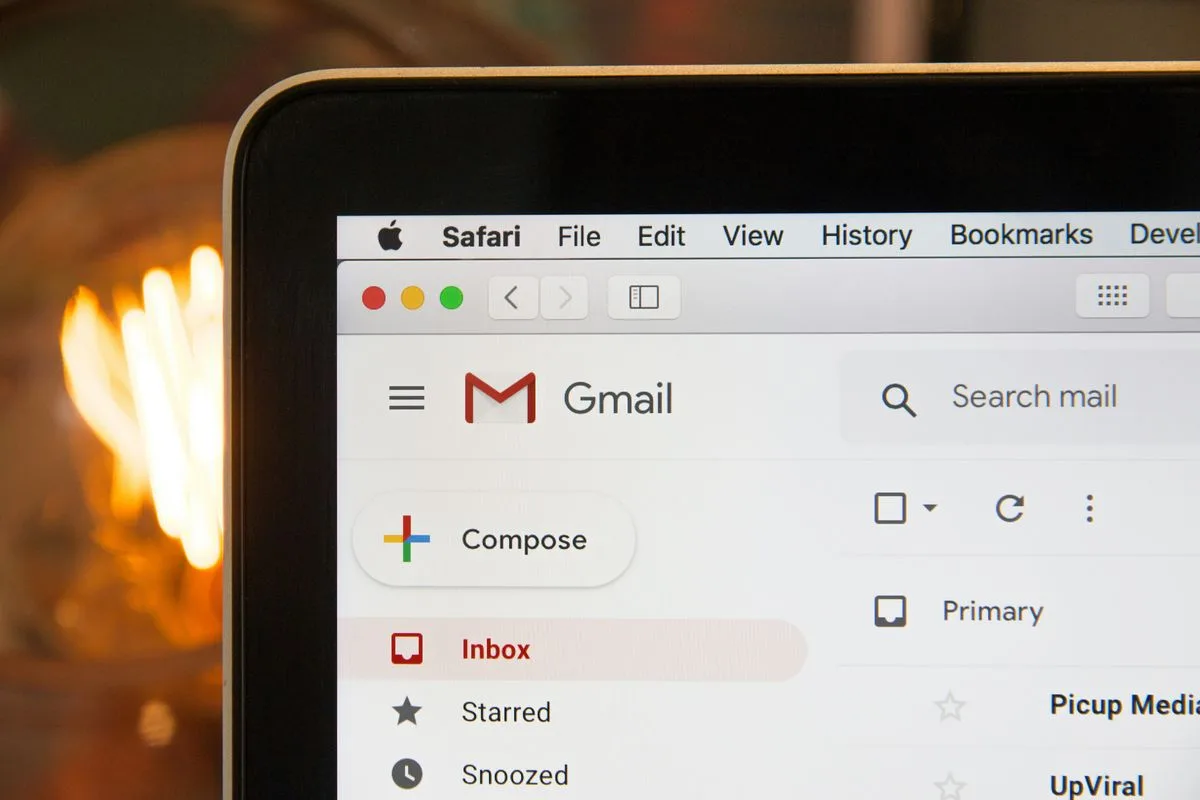Growleady Team
Lead Generation Experts
B2B Marketing Essentials: Strategies and Best Practices
Explore key elements of B2B marketing, from content and digital strategies to AI and video trends. Leverage cutting-edge tools to drive business growth.

B2B marketing is a dynamic and often underappreciated field. It’s all about the art of selling products or services to other businesses, rather than individual consumers.
You might be thinking, "Why should I care about B2B marketing?" Well, it's the driving force behind many industries and affects the products and services we use every day. From office supplies to software solutions, B2B marketing shapes the business world.
Whether you're a budding entrepreneur or a seasoned professional, understanding B2B marketing can give you valuable insights into how businesses interact and grow.
Understanding B2B Marketing: An Overview
B2B marketing is all about connecting businesses with other businesses. It's the art of promoting products or services to organizations rather than individual consumers. Unlike B2C (business-to-consumer) marketing, B2B focuses on the unique needs and challenges of companies, aiming to provide solutions that drive growth and efficiency.
Target Audience in B2B Marketing
B2B marketing targets decision-makers within organizations. These include:
C-suite executives
Department heads
Procurement managers
IT specialists
End-users with influence
Understanding the diverse roles involved in B2B purchasing decisions is crucial. Each stakeholder has different priorities and pain points, requiring tailored messaging and content.
Key Strategies in B2B Marketing
Effective B2B marketing employs a mix of strategies:
Content Marketing: Creating valuable, informative content that addresses industry challenges and solutions.
Digital Marketing: Utilizing online channels to reach and engage potential clients.
Account-Based Marketing (ABM): Targeting specific high-value accounts with personalized campaigns.
Email Marketing: Nurturing leads and maintaining relationships through targeted email communications.
Social Media Marketing: Leveraging platforms like LinkedIn to build brand awareness and engage with professionals.
Content Types in B2B Marketing
B2B marketing content differs from B2C content in its focus and depth:
White papers and case studies
Industry reports and research
Webinars and virtual events
Technical specifications and product comparisons
ROI calculators and cost-benefit analyses
This content aims to educate, inform, and demonstrate value to potential clients, addressing their specific business needs and challenges.
Common Misconceptions in B2B Marketing
"B2B marketing is boring": While it's more formal than B2C, B2B marketing can be creative and engaging.
"It's all about cold calling": Modern B2B marketing relies on multi-channel approaches, not just direct sales tactics.
"B2B buyers are purely rational": Emotions play a role in B2B decisions, though different from B2C emotions.
Best Practices for B2B Marketing
To excel in B2B marketing:
Focus on building relationships and trust
Provide value through educational content
Tailor your approach to different decision-makers
Leverage data and analytics for targeted campaigns
Align marketing efforts with sales strategies
By understanding these key aspects of B2B marketing, you'll be better equipped to create effective strategies that resonate with business clients and drive growth for your organization.
Key Components of B2B Marketing
B2B marketing encompasses several essential components that drive business growth and foster relationships between companies. Let's explore the key elements that make up effective B2B marketing strategies.
Content Marketing
Content marketing forms the backbone of B2B marketing strategies. It's all about creating and sharing valuable information that resonates with your target audience. Here's why it's crucial:
Establishes thought leadership
Builds trust and credibility
Educates potential clients
Nurtures leads through the sales funnel
To excel at content marketing, focus on producing high-quality blog posts, whitepapers, case studies, and webinars. These resources should address your audience's pain points and offer practical solutions. Remember, the goal isn't just to sell but to provide genuine value that positions your company as an industry expert.
Account-Based Marketing (ABM)
ABM is a targeted approach that treats individual accounts as markets of one. It's particularly effective for B2B companies with high-value deals and long sales cycles. Here's how ABM works:
Identifies key decision-makers within target accounts
Tailors marketing messages to specific account needs
Aligns sales and marketing efforts
Delivers personalized content and experiences
To carry out ABM successfully, start by creating detailed ideal customer profiles. Use data analytics to identify accounts that match these profiles. Then, craft personalized campaigns that speak directly to each account's unique challenges and goals.
Digital Marketing Strategies
Digital marketing is essential for reaching and engaging B2B buyers in today's connected world. It encompasses various tactics, including:
Search Engine Optimization (SEO)
Pay-Per-Click (PPC) advertising
Social media marketing
Email marketing
To make the most of digital marketing:
Optimize your website for search engines to improve visibility
Use targeted PPC campaigns to reach decision-makers
Leverage LinkedIn for professional networking and content distribution
Carry out email nurture campaigns to guide leads through the buyer's journey
Remember, the key to successful B2B digital marketing is to provide value at every touchpoint. Focus on creating informative, relevant content that addresses your audience's specific needs and challenges.
Essential B2B Marketing Channels
B2B marketing encompasses various channels to reach and engage other businesses effectively. Here are three essential channels that form the backbone of successful B2B marketing strategies:
Email Marketing

Email marketing remains a powerful tool for B2B marketers to connect with potential buyers and decision-makers. Growleady specializes in crafting and executing targeted email campaigns that effectively:
Nurture leads through personalized content
Share valuable industry insights
Promote products or services directly to interested parties
To maximize email marketing effectiveness:
Segment your email list based on industry, company size, or buyer persona
Craft compelling subject lines that spark curiosity
Personalize content to address specific pain points
Include clear calls-to-action (CTAs) to guide recipients
Test different send times to optimize open rates
Remember, quality trumps quantity. Focus on delivering value in each email rather than bombarding inboxes with generic messages.
Social Media Marketing
Social media platforms offer B2B marketers unique opportunities to humanize their brand and build meaningful relationships. Key strategies include:
Sharing thought leadership content to establish expertise
Engaging in industry discussions to increase visibility
Showcasing company culture to attract top talent
Leveraging paid advertising for targeted reach
LinkedIn stands out as the premier platform for B2B social media marketing. It's ideal for:
Connecting with decision-makers
Sharing long-form content
Participating in industry-specific groups
Running targeted ad campaigns
Don't overlook other platforms like Twitter for real-time engagement or YouTube for in-depth product demonstrations.
Search Engine Optimization (SEO)
SEO is crucial for increasing online visibility and driving organic traffic to your website. Effective B2B SEO strategies involve:
Conducting thorough keyword research to identify industry-specific terms
Creating high-quality, informative content that addresses buyer pain points
Optimizing on-page elements like title tags, meta descriptions, and headers
Building authoritative backlinks from reputable industry sources
Improving site speed and user experience for better rankings
To excel in B2B SEO:
Focus on long-tail keywords that reflect specific industry needs
Develop a content calendar to consistently publish valuable resources
Optimize for local search if you serve specific geographic areas
Leverage schema markup to enhance search result appearance
Regularly analyze and adjust your SEO strategy based on performance metrics
By integrating these essential channels into your B2B marketing strategy, you'll create a robust framework for reaching and engaging your target audience effectively.
B2B Marketing Tools and Technologies
B2B marketing incorporates a variety of tools and technologies to connect with target audiences, deliver compelling experiences, and drive revenue. Here's a breakdown of key components:
Marketing Funnel
The B2B marketing process follows a funnel structure:
Demand generation
Lead generation
Lead nurturing
Evaluation
Purchase
This funnel guides prospects from initial awareness to final conversion, helping you track and optimize each stage of the customer journey.
Content Marketing
Content marketing establishes thought leadership and attracts target audiences. Examples include:
Blog posts
White papers
Educational content
By creating valuable, relevant content, you position your brand as an industry expert and build trust with potential clients.
Search Engine Optimization (SEO)
SEO drives website traffic by optimizing content for popular search terms. Key SEO tactics include:
Keyword research
On-page optimization
Link building
Technical SEO
Implementing these strategies helps your business rank higher on search engines, increasing visibility and organic traffic.
Email Marketing
Email remains a powerful channel for driving traffic and engagement. Effective email marketing strategies include:
Segmentation
Personalization
A/B testing
Automated workflows
By delivering tailored messaging to your target audience, you nurture leads and guide them through the sales funnel.
Marketing Funnel: Tracks the customer journey
Content Marketing: Establishes thought leadership
SEO: Boosts organic visibility
Email Marketing: Effectively nurtures leads
These tools and technologies form the foundation of a successful B2B marketing strategy. By leveraging them effectively, you'll create a cohesive approach that attracts, engages, and converts your target audience.
Measuring B2B Marketing Success
Measuring B2B marketing success is crucial for optimizing strategies and demonstrating ROI. It involves tracking specific metrics and analyzing data to gauge the effectiveness of your marketing efforts.
Key Performance Indicators (KPIs)
Key Performance Indicators (KPIs) are essential metrics that help you evaluate the success of your B2B marketing campaigns. Here are some important KPIs to track:
Lead Generation: Monitor the number of new leads generated through various marketing channels.
Conversion Rate: Track the percentage of leads that convert into customers.
Customer Acquisition Cost (CAC): Calculate the average cost of acquiring a new customer.
Customer Lifetime Value (CLV): Estimate the total revenue a customer generates over their relationship with your company.
Sales Cycle Length: Measure the average time it takes to close a deal from initial contact.
Return on Investment (ROI): Determine the overall profitability of your marketing efforts.
Website Traffic: Analyze the number of visitors to your website and their behavior.
Engagement Metrics: Track social media interactions, email open rates, and click-through rates.
By focusing on these KPIs, you'll gain valuable insights into your B2B marketing performance and identify areas for improvement.
Analytics and Reporting
Effective analytics and reporting are crucial for measuring B2B marketing success. Here's how to make the most of your data:
Carry out Tracking Tools: Use tools like Google Analytics, marketing automation platforms, and CRM systems to collect comprehensive data.
Set Up Custom Dashboards: Create dashboards that display your most important KPIs at a glance.
Conduct Regular Reporting: Generate weekly, monthly, and quarterly reports to track progress and identify trends.
Analyze Multi-Touch Attribution: Understand which touchpoints contribute most to conversions and sales.
Segment Data: Break down your data by factors like industry, company size, or marketing channel to gain deeper insights.
A/B Testing: Continuously test different marketing elements to optimize performance.
Predictive Analytics: Use historical data to forecast future trends and outcomes.
Integrate Data Sources: Combine data from various marketing channels to get a holistic view of your efforts.
Remember, the key to successful B2B marketing measurement is not just collecting data but deriving actionable insights. Regularly review your analytics and use the findings to refine your strategies and improve your overall marketing performance.
Challenges in B2B Marketing
B2B marketing presents unique hurdles that differ from B2C strategies. Understanding these challenges is crucial for developing effective campaigns and achieving your marketing goals.
Long Sales Cycles
B2B sales cycles are often longer and more complex than B2C transactions. Deals can take months or even years to close, requiring patience and persistent nurturing. To address this:
Develop a robust lead nurturing strategy
Create content for each stage of the buyer's journey
Use marketing automation to maintain consistent touchpoints
Multiple Decision Makers
B2B purchases typically involve multiple stakeholders, each with different priorities and concerns. This complicates the decision-making process. To navigate this challenge:
Create targeted content for various roles (e.g., technical, financial, executive)
Carry out account-based marketing strategies
Provide resources that address different stakeholder concerns
Limited Target Audience
Unlike B2C markets, B2B often has a smaller pool of potential customers. This makes it crucial to:
Conduct thorough market research to identify your ideal customer profile
Personalize your marketing efforts
Focus on building long-term relationships with existing clients
Complex Products or Services
B2B offerings are often more complex than consumer products, making it challenging to communicate value propositions clearly. To overcome this:
Use visual aids like infographics or explainer videos
Provide detailed case studies and white papers
Offer product demonstrations or free trials
Data Privacy and Security Concerns
With increasing regulations like GDPR and CCPA, B2B marketers must be vigilant about data protection. To address this challenge:
Carry out robust data protection measures
Be transparent about data collection and usage
Obtain explicit consent for marketing communications
Measuring ROI
Demonstrating the return on investment for B2B marketing efforts can be challenging due to long sales cycles and multiple touchpoints. To improve ROI measurement:
Carry out robust analytics and attribution models
Set clear KPIs for each marketing initiative
Use customer lifetime value as a metric for long-term success
Keeping Up with Digital Transformation
As B2B buyers increasingly prefer digital interactions, marketers must adapt their strategies. To stay ahead:
Invest in omnichannel marketing approaches
Leverage AI and machine learning for personalization
Continuously update your digital marketing skills
Content Saturation
With the rise of content marketing, B2B buyers are inundated with information. To cut through the noise:
Focus on creating high-quality, original content
Tailor content to specific stages of the buyer's journey
Experiment with different content formats (e.g., podcasts, interactive content)
By recognizing and addressing these challenges, you'll be better equipped to create effective B2B marketing strategies that drive results and foster long-term business relationships.
Future Trends in B2B Marketing

As B2B marketing evolves, staying ahead of the curve is crucial for success. Here are some emerging trends that'll shape the future of B2B marketing:
Artificial Intelligence (AI) and Machine Learning
AI's transforming B2B marketing by:
Personalizing content at scale
Predicting customer behavior
Automating repetitive tasks
Enhancing lead scoring and qualification
For example, AI-powered chatbots can engage prospects 24/7, answering queries and qualifying leads before human intervention.
Account-Based Marketing (ABM) 2.0
ABM's evolving to become more sophisticated:
Hyper-personalization for target accounts
Integration of intent data for better targeting
Cross-functional collaboration between sales and marketing
Multi-channel orchestration for seamless customer experiences
Video Marketing Dominance
Video content's becoming indispensable in B2B:
Live streaming for product demos and Q&A sessions
Interactive videos for immersive experiences
Short-form videos for social media engagement
Video testimonials for social proof
Voice Search Optimization
With the rise of voice assistants, optimizing for voice search is crucial:
Focus on long-tail keywords and natural language
Create FAQ pages to address common queries
Optimize for local search with location-specific content
Ensure mobile-friendliness for better voice search performance
Augmented Reality (AR) and Virtual Reality (VR)
AR and VR are revolutionizing B2B marketing by:
Offering virtual product demos and tours
Creating immersive trade show experiences
Enhancing training and onboarding processes
Providing interactive 3D product visualizations
Privacy-First Marketing
With increasing data privacy concerns, B2B marketers must adapt:
Carry out robust data protection measures
Embrace first-party data strategies
Offer transparent opt-in processes
Provide value in exchange for data
Influencer Marketing in B2B
Influencer marketing's gaining traction in B2B:
Collaborate with industry thought leaders
Leverage employee advocacy programs
Create co-branded content with partners
Engage micro-influencers for niche markets
Blockchain for Transparency and Trust
Blockchain technology's potential in B2B marketing includes:
Verifying ad delivery and performance
Ensuring supply chain transparency
Protecting intellectual property rights
Facilitating secure and transparent transactions
Conversational Marketing
Real-time, personalized interactions are becoming the norm:
Carry out AI-powered chatbots for 24/7 support
Use messaging apps for direct communication
Offer personalized product recommendations
Provide instant responses to customer queries
Sustainability and Social Responsibility
B2B buyers increasingly value ethical practices:
Highlight sustainable business practices
Showcase corporate social responsibility initiatives
Partner with eco-friendly suppliers and vendors
Communicate transparent and ethical business practices
By embracing these trends, you'll position your B2B marketing efforts for future success. Remember, the key is to adapt and integrate these trends in ways that align with your specific business goals and target audience preferences.
Conclusion
B2B marketing is a dynamic field that's constantly evolving. By understanding its core components and staying attuned to emerging trends, you'll be well-equipped to navigate the complex world of business-to-business relationships. Remember, successful B2B marketing isn't just about implementing strategies. It's about creating value for your clients and building long-lasting partnerships.
As you refine your approach, don't forget to measure your results and adapt accordingly. The future of B2B marketing is bright with exciting possibilities. Embrace these changes, and you'll be well-positioned to drive growth and success for your business in the years to come.
Frequently Asked Questions
What is B2B marketing?
B2B marketing refers to strategies and tactics used by businesses to promote products or services to other businesses. It involves understanding the needs of other companies, creating targeted content, and building relationships with decision-makers. Unlike B2C marketing, B2B often has longer sales cycles, higher-value transactions, and more complex decision-making processes.
How does content marketing benefit B2B companies?
Content marketing helps B2B companies establish thought leadership, build trust, and educate potential clients. By creating valuable, relevant content like whitepapers, case studies, and blog posts, businesses can attract and engage their target audience. This approach nurtures leads through the sales funnel, ultimately driving conversions and fostering long-term relationships with clients.
What is account-based marketing (ABM)?
Account-based marketing is a targeted B2B strategy that focuses on key accounts or high-value prospects. It involves personalized marketing efforts tailored to specific companies or decision-makers. ABM aligns sales and marketing teams to create customized campaigns, content, and experiences for each target account, resulting in higher engagement rates and more efficient use of marketing resources.
How can B2B companies leverage social media marketing?
B2B companies can use social media to build brand awareness, share industry insights, and engage with potential clients. Platforms like LinkedIn are particularly effective for professional networking and thought leadership. By consistently sharing valuable content, participating in industry discussions, and showcasing company culture, B2B firms can establish credibility and attract potential leads through social channels.
What is privacy-first marketing in B2B?
Privacy-first marketing in B2B focuses on respecting and protecting customer data while delivering personalized experiences. It involves being transparent about data collection and usage, complying with regulations like GDPR, and prioritizing user consent. B2B companies should implement robust data protection measures, offer opt-in choices for communications, and use first-party data responsibly to build trust with clients and prospects.
How can B2B companies incorporate sustainability into their marketing?
B2B companies can incorporate sustainability by highlighting eco-friendly practices, products, or services in their marketing efforts. This may include showcasing sustainable supply chain practices, energy-efficient solutions, or carbon-neutral initiatives. Creating content around sustainability topics, partnering with environmentally conscious organizations, and demonstrating corporate social responsibility can attract like-minded businesses and enhance brand reputation in the B2B space.


